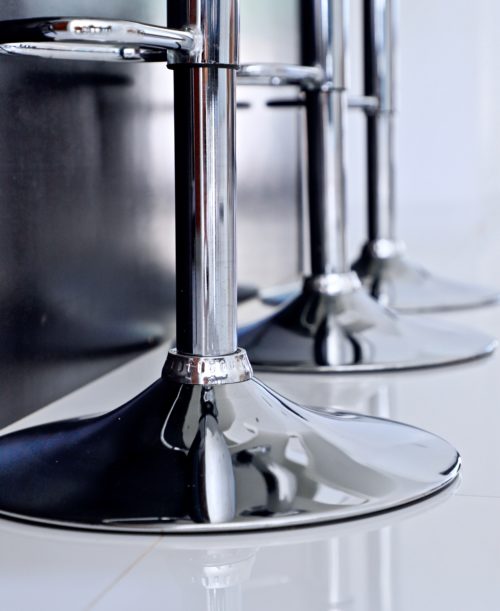 Metal spinning is a technique for fabricating parts with a circular cross-section from a flat metal disc or cylinder. Metal spinning is also often referred to as spin forming or metal turning. Metal spinning is commonly used in the fabrication of various metallic bases for a wide variety of commercial and industrial goods.
Metal spinning is a technique for fabricating parts with a circular cross-section from a flat metal disc or cylinder. Metal spinning is also often referred to as spin forming or metal turning. Metal spinning is commonly used in the fabrication of various metallic bases for a wide variety of commercial and industrial goods.
Where Are Metal Spun Bases Used?
Metal spun bases are a natural fit for applications requiring a symmetrical, round component as a base or for finishing. They are widely used in the following applications:
- Bases for mannequins and display stands in the clothing industry
- Flag stands, pole bases, or fencing bases for construction projects
- Bases for chairs, tables, bar stools, and various restaurant furniture
- Display cases and stands in grocery and retail stores
Aluminum, brass, copper, steel and metallic alloys are all used to make spun bases. Metal spinning automation with computer numerical controlled (CNC) machines can produce various bases from any of these metals with strict tolerances.
Furniture manufacturing uses metal spun bases for their visual appeal as well as robustness. Steel is usually the metal of choice for furniture manufacturing due to its machinability and strength. Steel parts are also very durable even under fluctuating ambient conditions and high loads. Furthermore, steel parts have an appealing finish that can be maintained for a long time through simple and easy cleaning methods.
Aluminum and brass are used for products that need a high polish—aluminum is used for commercial products while brass is more suitable for decorative purposes. Copper is appropriate for light fixtures and roofing parts due to its high thermal conductivity.
Advantages of Metal Spinning
The main advantages of metal spinning are as follows:
- Low waste. Spinning generates much less waste than other manufacturing methods and the generated scrap can be easily retained and recycled. This is true for manual spinning as well as precision spinning with CNC machines.
- Reduced costs. Spinning tools cost a much less than the tools used in other manufacturing processes, giving metal spinning a cost advantage over competitive forming methods.
- Durability. Spun parts are essentially a single piece with no seams which makes them very sturdy and durable.
- Speed. The short turnaround time and flexibility of the spinning process makes it an attractive and economical process for volumes ranging from prototyping through high volume production.
- Versatility. Though the process is simple, it can be used for fabricating a wide variety of shapes. Basic spun shapes such as dishes, domes, flanges, hemispheres, and whole spheres can be combined to make more complicated shapes. A virtually endless variety of products of differing shapes, sizes, and finishes can be fabricated when spinning is used in combination with welding.
Metal Craft Spinning & Stamping has been in the metal spinning business for more than 50 years. We are skilled at hand spinning, as well as spinning with modern CNC machines. We also have in-house hydraulic metal stamping presses, enabling us to meet a broad variety of metal forming needs. Metal Craft can be your one-stop shop for bases, stands, and other metal products.
Contact Us today with information about your next project.


